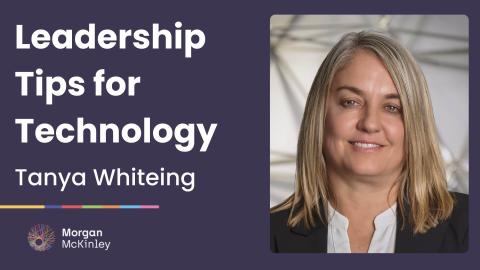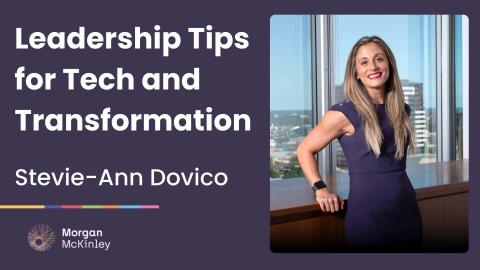Stand out and succeed: Leadership tips for Technology - Phoebe Hines

As part of our ongoing commitment to our specialist communities, we interview accomplished leaders on a monthly basis to bring you insights on their career progression and advice that will help you progress your career further.

Phoebe Hines is currently the Acting Chief Information Security Officer at the Department of Planning, Housing and Infrastructure NSW. She started with the department over 17 years ago as a Data Manager, developing and delivering data management systems. Phoebe then moved into application development and systems integration for many years. Now, she is responsible for everything cybersecurity across the entire department - from teams that handle policies, certifications, architecture, incident detection and response, to the assurance process that demonstrates a secure environment.
1. What factors do you think have been critical to the success you have achieved in your career?
Firstly, I would say authenticity and empathy. Being authentic with people, knowing when to show empathy, and treating others how you would like to be treated. It’s something I have consistently received positive feedback about. I think when you support and help others within the workplace it’s something people truly appreciate and notice. Also, having a can-do attitude. When you are offered opportunities to broaden your skills or prove them, take them. From my experience, when you demonstrate the willingness and the desire, you are much more likely to be offered opportunities. Lastly, I would say work-life balance, knowing how to integrate life with work. While I have put an immense amount of effort into my career to get myself to where I am, I’ve always prioritised the balance to avoid burnout and so I can bring the best version of myself to work each day.
2. What's the most valuable piece of advice you have received in your career and how did it help you?
Being willing to venture out of your comfort zone is crucial; most of the things that are worth doing are challenging. Generally, if you aren't nervous about something or if you don't find it a bit hard, then it's probably not pushing you out of your comfort zone and helping you grow.
Also, I think it’s really important to have great role models. Someone said to me recently, “If you see it, you can be it.” I think it perfectly encapsulates why it is important to have role models around you so you have inspiration and tangible examples of success. I’ve had lots of fantastic role models both personally and professionally. The best way to foster greater participation of young women in leadership and tech is to increase the numbers, recognise them and make them visible.
3. What's the most challenging situation you have faced in your career and how did you overcome it?
I've had the experience of dealing with a really bad manager twice in my career. Their values and ways of working didn't align with the business we were in. They were derogatory towards others, spoke behind their backs, and failed to provide clear directions. It was extremely challenging and made me doubt my abilities and confidence. To overcome it, I made sure to seek support and talk to someone confidentially. I stayed true to my values and morals, knowing that their behaviour wasn't how I wanted to act. I had the courage to speak up to someone more senior, and fortunately, others had done the same. This led to the manager leaving the organisation. This experience taught me a lot about what I don't want to be like as a leader.
4. If you were starting your career now, what would you do differently?
While I'm satisfied with my journey so far, if I were to start over, I'd prioritise having a great mentor. Someone to bounce ideas off of and gain confidence from, especially in the early stages of my career. Having an honest advisor earlier in my career, who could push me out of my comfort zone and provide honest feedback would have been invaluable.
In seeking a mentor, I'd look for someone in a similar industry, a step or two ahead in their career. Simply having a biweekly catch-up with someone who inspires me could suffice. It's encouraging to see that many businesses nowadays, including mine, offer mentorship programs internally too.
5.Why did you choose to work in the Tech space and what would you say to other females to consider the same?
There were two main things that influenced my decision. Firstly, during my school years, I faced the challenge of making that initial career choice. Recognising the ubiquity of technology across industries, I saw it as a versatile field allowing me to explore different sectors until I found my passion.
Secondly, I've always had a logical and analytical mind. I enjoy working with numbers and excelled in mathematics at school. Even though there was far less technology around when I was growing up, I was still exposed to it. My dad worked in IT, and my mum had integrated tech into many aspects of her work. I've always been fascinated by understanding how things work and enjoyed creating solutions, so choosing technology felt very natural for me.
To others considering a similar path, I'd advise them to follow their interests and take that leap. Work should be driven by passion and enthusiasm. The tech industry offers a multitude of opportunities across various sectors, from data analytics to software development to network infrastructure. There are countless paths to explore and skills to both bring and develop.














